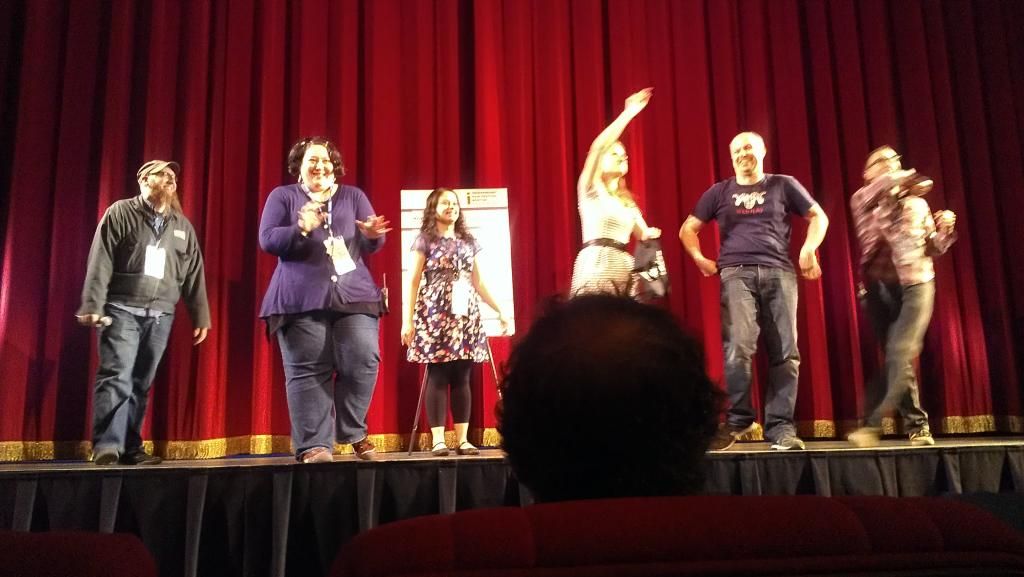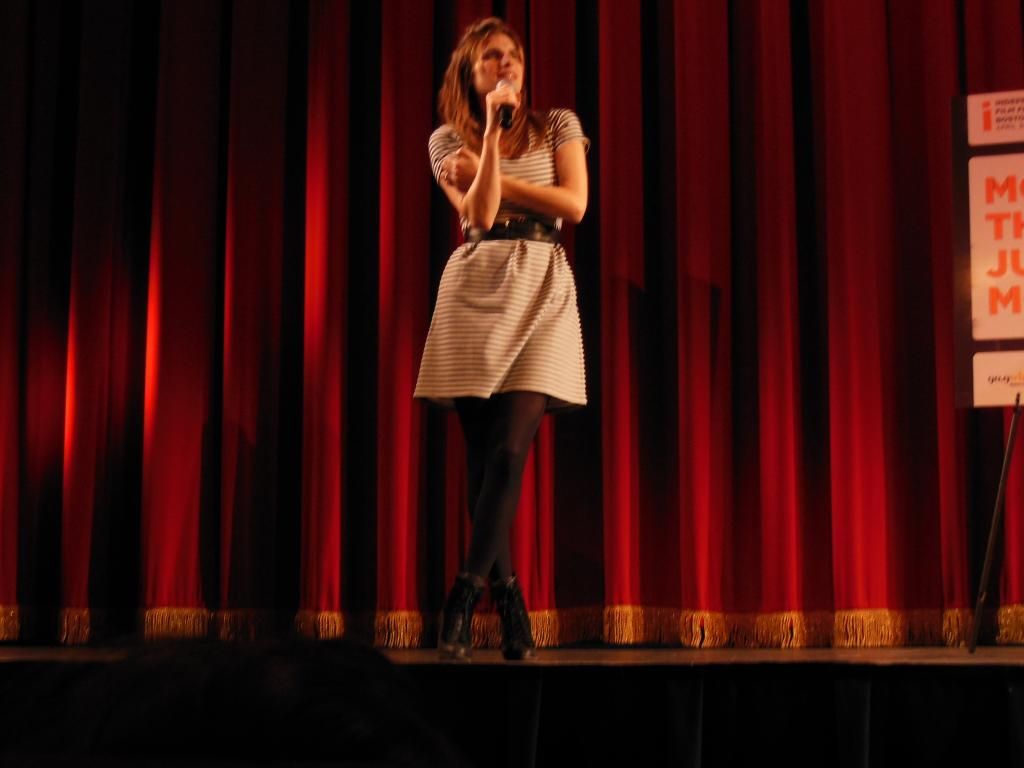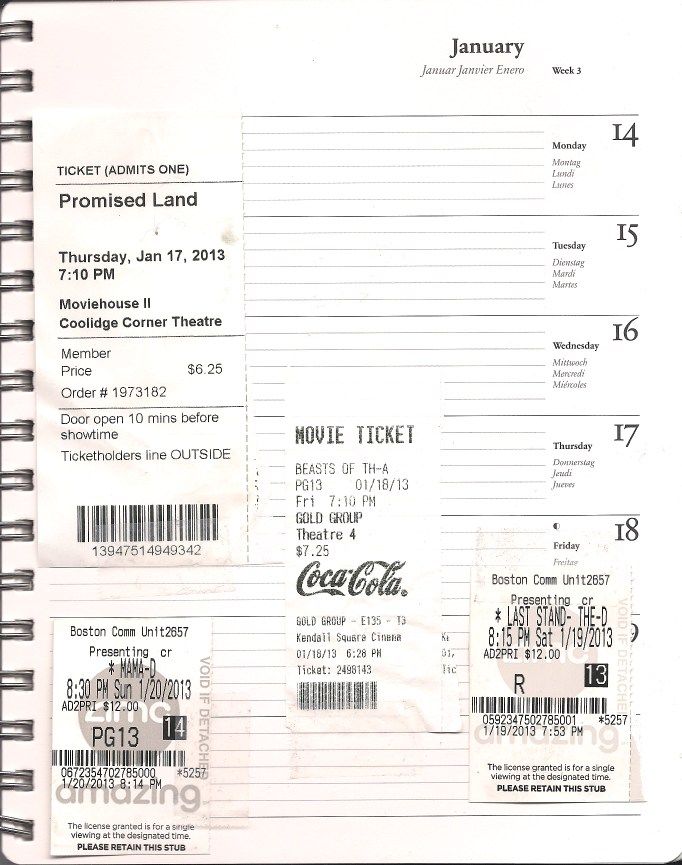Of the two movies about female voices, Twenty Feet from Stardom was the better one. It's got the advantage of being able to tell several stories rather than just one, and really has its mind set on what it wants to talk about. It also doesn't hurt that the ladies in Twenty Feet are by and large creating things that the audience loves - a lot of classic songs get mentioned over the course of the film - while the voiceover folks are fighting to do something people at best tolerate.
One other thing about Twenty Feet that's not in the review, but it did help me develop a bit more of a respect/fondness for Bruce Springsteen. I've got friends who are absolutely nuts about him - when a new tour is announced, they'll spend a couple of weeks plotting out who's going to but how many tickets for which shows, and do they want to see some of the ones outside the immediate Boston area, and do they have signs ready to request "The Fever" (and that's nothing compared to when a new album drops) - but to me he's just been sort of pretty good. Still, it's neat to see him discussing these singers' history and just what a good set up backing vocals does for a song enthusiastically but knowledgeably. So often, rock & roll, like comedy, is treated as something that's basically instinctive, and it is to a point, but the guys who do it really well and who last the way Springsteen has know what they're doing, and have probably put a lot more thought into what works, artistically and commercially, than you might assume.
Well, anyway, back to the festival proper. I showed up for this closing night show pretty late, nearly 7:45pm for an 8:00pm scheduled start. Normally, that's pretty good, but it's also about when they assume the passholders who haven't yet shown aren't coming and start selling tickets to whoever was in the rush line; I wound up getting in just before that happened. Working in Burlington can stink. Sometime, I'm going to spend a couple of weeks even when I don't plan on seeing anything at the Coolidge figuring out which is the best route: Get off the Red Line at Harvard Square and take the 66 bus, or continue on to Park Street and take the Green Line's C train. Now, the 66 is such a frustrating part of the MBTA as to have inspired a belligerant parody twitter account that most people say captures the experience perfectly, but the C line is really underrated as a pain in the ass - you can easily wait twenty minutes for one at Park Street while a half-dozen B line trains go by, and while the Cleveland Circle stop-at-every-intersection-and-go nature isn't as pronounced as it is for the Boston College trolley, it's no fun. I need to solve this with science.
Sorry for the T-angent. Anyway, I did get there, was able to find a single seat front and center (where I like to be, anyway), and catch a few potato chips that were tossed into the audience to slake my "not eating until 11pm at least" hunger. I was pleased to see Bobcat Goldthwait and friends grab some seats in the front left-hand section of the theater; it seems relatively rare to me to see higher-profile film festival guests actually attending movies other than their own, but I like to make a note of the guys who wait in line and sit in the audience with us civilians; they're genuine fans. I just kind of hope that the guy directly behind me who was planning a "bad movie night" with his friends and suggested Goldthwait's movies didn't see he was there, because otherwise... Well, not cool.
As it was the last night, the traditional thanking of the sponsors and was followed by the introduction of the staff and special guest (a la opening night) and, shall we say, random distribution of prizes:

Charming lady, Lake Bell, but she really doesn't have the arm Casey Affleck does. I also must admit, I miss the days of Harmonix being a sponsor and Nancy faking that she was going to throw a deluxe Rock Band set into the audience and cause serious injury. A lot of the big-name sponsors were gone, for that matter, and as much as not seeing the same Ford and Jet Blue ads twenty times was a fair trade for not having door prizes, it's a bummer that the festival was a day shorter than it was last year. I don't think the quality of the films shown suffered - even if I gave out fewer four-star reviews this year, that's more personal taste than feeling like they were having to settle for second-tier stuff.

So, Lake Bell introduced her movie, we watched, she came back and answered questions. Having a Q&A follow a movie does odd things to the experience, as it's hard to not conflate them. If you really like the filmmaker who answers questions in a witty, informative way, it can skew what you think of the movie, and what they say about the plot that wasn't shown in the movie can get stored in your brain like it was. If, as was the case with In a World..., the judgments and reactions to the film's strengths and weaknesses can color how you think of the filmmaker as a person, which is kin of uncomfortable and, really, downright unfair.
So, as much as I'm sure Ms. Bell's a great person, the answers she gave to some questions rubbed me the wrong way a bit more than they should have. Consider: The previous night, I more or less let the discussion of music choices in Some Girl(s) go in one ear and out the other; this night, the way she explained that some songs were favorites that she associated with the themes sounded random. Unfair of me. She also talked about trying to avoid Los Angeles landmarks and not showing people using smartphones to keep the movie from being tied to a specific time and place, and I think that was kind of silly - it's a movie about people who narrate movie trailers that specifically mentions Don LaFontaine having died a few years ago - where and when else is it going to be set?
Still, I liked her; she was cheerful and enthusiastic, and had as good a laugh as anyone when the obvious question of what the heck the trailer for this movie would look like came up. It was fun hearing that she did a lot of phone voices herself - sometimes with the engineers adjusting things, sometimes with her just using different tones and accents. I kind of wish she'd done that more in the movie - heck, in more movies she does - because it's something both she and the character are good at, and that's what you want to see.
And with that, it's time to put IFFBoston to bed for another year... And start looking for apartments in Montreal for Fantasia!
In a World...
* * ½ (out of four)
Seen 30 April 2013 in Coolidge Corner Theatre #1 (Independent Film Festival Boston, digital)
Funny thing; even when trailers starting with "in a world..." supposedly happened all the time, I don't ever recall hearing it enough to snicker when it did show up. Still, the very fact that people act like it was ubiquitous makes it a good title for a comedy set in the competitive world of voice-over narration - the audience knows exactly what it's about when they hear the name. It's a shame, then, that the movie itself doesn't always seem quite so clear on what it's trying to accomplish.
While the voice most of us identify with movie previews belonged to Don LaFontaine, In a World... gives us Sam Sotto (Fred Melamed) as the clear #2 and heir to LaFontaine's throne. His daughter Carol Solomon (Lake Bell) lives in his house is sort of in the same business, working as a dialect coach since she has a fantastic ear for accents. With Sam's much-younger girlfriend Jamie (Alexandra Holden) moving in, Carol winds up crashing with her sister Dani (Michaela Watkins) and her husband Moe (Rob Corddry). She also winds up getting a couple of voice-over jobs, and may be in a position to get the most coveted job of all - a trailer for an adaptation of a hot series of young-adult novels, previously expected to go to Sam's protégé Gustav Warner (Ken Marino), where those three words will be used for the first time since LaFontaine's death.
That may seem like a small and silly thing to fixate on, but that's what makes it potentially such great material for a comedy: It practically guarantees eccentricity from its characters, puts them in odd situations, and the very fact that what they're gunning for is so seemingly trivial makes the lengths that people will go to achieve it even funnier. Writer/director/star Bell seems to get that most of the time, especially as she loads up the film with truly oddball characters. Carol "collects" accents and practically has her hair stand up on end whenever she hears a grown woman talking like a teen valley girl (especially Jamie), Gustav is bizarrely self-centered, and everyone at the recording studio where she works is full of people who would be misfits anywhere else - including and especially sweetly awkward sound engineer Louis (Demetri Martin). It's an ensemble with a lot of potential.
Full review on eFilmCritic.
Twenty Feet from Stardom
* * * ½ (out of four)
Seen 5 May 2013 in Coolidge Corner Theatre #2 (Talk Cinema, digital)
I kind of wish Twenty Feet from Stardom hadn't just come out and said that the story of backup singers is the evolution of popular music over the last fifty years, from gospel-trained black voices pushing stiff WASPs out of the spotlight to hyper-layered multitrack recording creating technical perfection at the cost of spontaneity. Oh, it tracks, right down to Phil Spector being a great producer but a human turd, but I was feeling so good about having figured that out myself a few minutes earlier. And while someone who actually knows something about music may disagree with this thesis, they'd be hard-pressed not to enjoy the stories of the talented ladies (mostly) used to illustrate it.
They include Darlene Love, who as part of The Blossoms was one of the first groups of black background singers in the studios, and who has gone through seemingly every possible up and down since then. There's Dr. Mable John, now a minister, and Claudia Lennear, a sex symbol back when she performed behind Ike & Tina Turner and the Rolling Stones. Lisa Fischer and Tata Vega are tremendously talented vocalists who flirted with solo careers but may have found their niche in harmonizing. And then there's Judith Hill, who was to have her big break on Michael Jackson's "This Is It" tour and is now weighing the benefits of steady work as a back-up singer and how it could keep people from thinking of her as a solo artist.
The business of music, after all, is a capricious thing, and the movie is filled with stories of people either missing their windows for a solo career - which, especially if you're an African-American woman from a working-class background like most of the film's subjects, can be vanishingly small - or having their ambitions be, by all appearances, actively thwarted. Director Morgan Neville does well to track that with the evolution of the music business, but he also doesn't make it so specific to that one industry; the subjects frequently talk about it in pragmatic enough terms that anybody who has ever felt stuck in a dead-end job or seen what they do automated is going to understand where they're coming from.
Full review on eFilmCritic.

